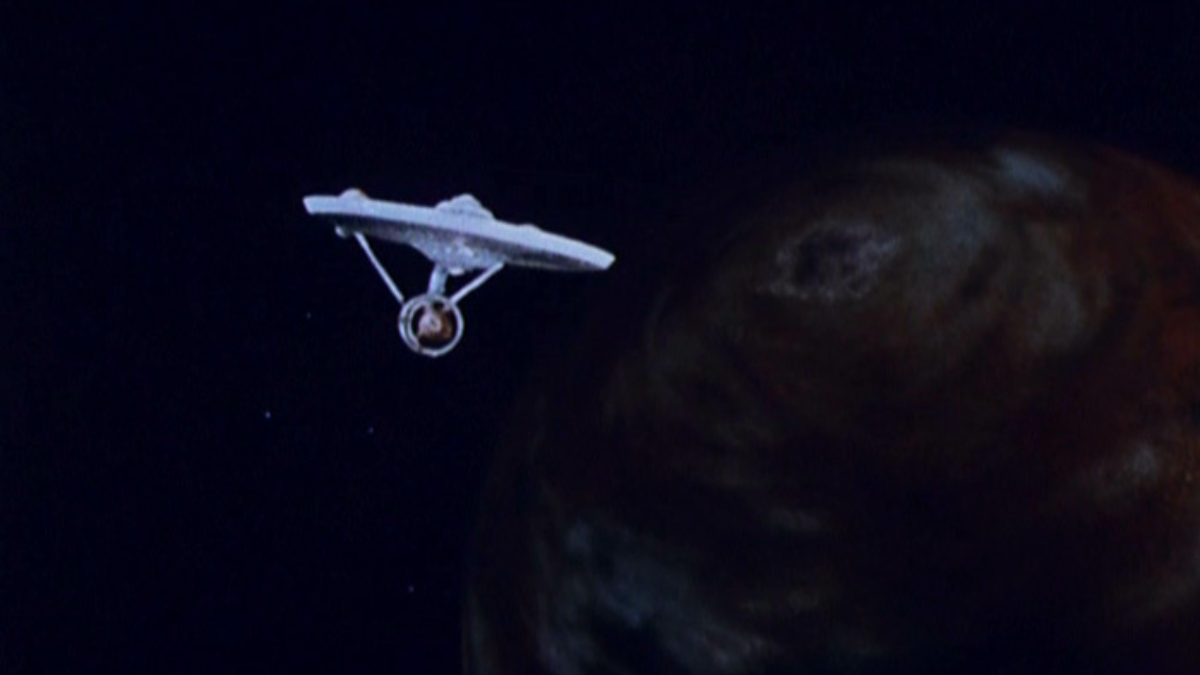Today in Star Trek history: Oscar Katz is released from Desilu

Oscar Katz and Balok both worked for Desilu Studios
MARCH 9, 2022 - When Lucille Ball hired Oscar Katz in 1964 as Desilu Studios’ Executive Vice-President in charge of Production, it was with the intention that he oversee the development and production of new programs. The thing was, he wasn’t just inexperienced with West Coast studio production, it has been suggested that he was in over his head. Two years later, on March 9, 1966, Katz’s association with Desilu Studios, and therefore Star Trek, came to an end.
It was clear from the start that Katz was going to need some help, so he hired an assistant named Herbert F. Solow. Before either man had even finished settling into their offices, they received a visit from Gene Roddenberry, pitching a new science fiction series. Star Trek was merely one of 22 series Katz and Solow bought in their first month at Desilu, one of the others being Mission Impossible. Katz and Roddenberry took the show to the Columbia Broadcasting System.
Katz had worked for CBS and arranged for Roddenberry to pitch the series to the network. Katz accompanied, but let Roddenberry, inexperienced at studio pitches, bungle through the presentation. Katz recalls the meeting:
We were in a dining room with six or seven executives, one of whom questioned us rather closely about what we were going to do with the show. We answered his questions and it turned out that his interest was due to the fact that they were developing a science fiction show of their own.
- Star Trek Creator: The Authorized Biography of Gene Roddenberry
That show was Lost In Space.
After the ill-fated meeting, Katz threw up his hands and let Solow take over the pitching process. The second-banana thoroughly coached Roddenberry for their last-ditch effort to sell the series, this time to NBC. The network was interested, and a pilot was commissioned.
On the 10th day of filming what would become the first pilot for the series, it was time to film Vina’s aging process, scheduled for half a day but taking a full one. A brace was built to hold actress Susan Oliver’s head immobile. The camera would film about 15 seconds, then some aging makeup was applied, then 15 more seconds, and so on. Katz had promised Susan Oliver an easy shoot, knowing full well what she was in for. “I’d made it a habit to attend the first day of shooting of a pilot to show that the head of the studio was with them.” Knowing how Oliver would feel about him when she learned the truth, he broke tradition on this show. “On Star Trek, I stayed away religiously even though it was just a 15-minute ride away from my office.”
The schedule, by now, was over schedule and Oliver’s mood was in the basement. She would ask where Oscar Katz was every day when she arrived, and the answer would always be the same: not here. On this particular day, Oliver had had enough. Sporting her old-age makeup, she had a photograph taken and sent to the absentee executive:
He never came, and a new picture of the sign, with other cast members, was taken and sent to Katz every day, to no avail.
We all know that the pilot in question didn’t sell and that a new one was commissioned, thus making history and launching a franchise of 55 years and counting. Nevertheless, the failed pitches and failed pilot were all seen as the fault of one man: Oscar Katz.
In truth, Katz’s relationship with Lucy had soured over the two years he worked for her. His inexperience showed in everything he did, and his absenteeism couldn’t have gone over well with her, either. There’s one (possibly apocryphal) story that, as time was running out on the second pilot, the fight scene was being filmed. Sand and styrofoam were kicked into the camera dolly tracks, delaying shooting as one of the crew members had to constantly sweep them off. Suddenly, The First Lady of Television, Lucy herself, picked up a broom and started helping clear the tracks. The crew was stunned for a moment, watching the head of the studio sweeping the tracks clean. Lucy paused briefly, turned her gaze on them, and said, “What do I have to do to get you to finish?” One can’t quite imagine Oscar Katz doing such a thing to get the show finished and on air.
“Oscar Katz Calls It Quits,” the March 9, 1966 issue of Variety exclaimed. Katz told the paper that he was leaving for “personal reasons,” moving on to “other projects in other areas.” His replacement, Herb Solow later clarified. “Oscar Katz was my boss,” he said, “but his relationship with Lucy and the board soured as they realized Oscar’s lack of studio experience made him only a titular chief operating officer.”
It’s hard to say whether Star Trek would be the success it is today if Oscar Katz had stayed with Desilu. Certainly, Solow’s oversight of Roddenberry’s show, as well as many others was more deftly handled than Katz’s brief tenure, and it didn’t seem like he was growing into the position, as one might have hoped. But then, he’s most famous for discovering Trek and Mission Impossible and a quick search of his biography doesn’t reveal what he left Desilu to do.
So let’s be grateful that he took that pitch from a former cop and let’s also be grateful that Herb Solow took more interest in the show than his former boss, and leave it at that.
T is the Managing Editor for Daily Star Trek News and a contributing writer for Sherlock Holmes Magazine and a Shakespeare nerd. He may have been the last professional Stage Manager to work with Leonard Nimoy, has worked Off-Broadway and regionally, and is the union Stage Manager for Legacy Theatre, where he is currently working with Julie Andrews. after which he’ll be working on Richard III at Elm Shakespeare Company.






